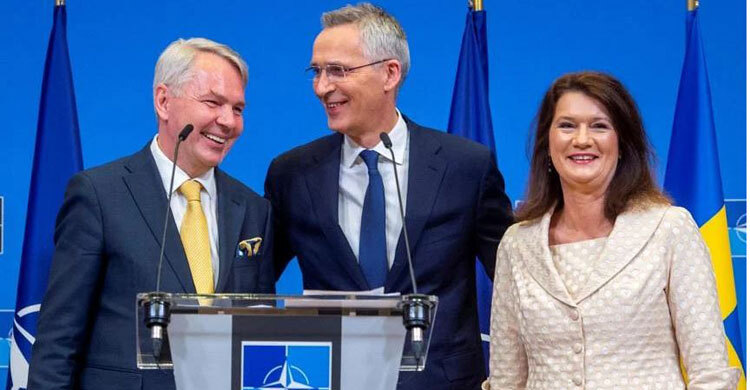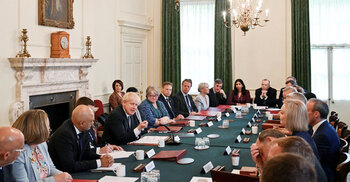Nato approves membership bids of Sweden and Finland

Nato's 30 member states formally approved membership bids for Finland and Sweden on Tuesday (July 5), sending their applications to alliance capitals for ratification by legislatures.
The ratification process must be unanimous and can take several months at least.
"This is truly a historic moment," Nato secretary-general Jens Stoltenberg said at a news conference alongside the foreign ministers of the two countries, Ms Ann Linde of Sweden and Mr Pekka Haavisto of Finland.
"With 32 nations around the table, we will be even stronger," he said.
All three acknowledged the concerns about terrorism expressed by Turkish President Recep Tayyip Erdogan, who originally blocked the applications.
Mr Stoltenberg was instrumental in negotiating a three-party memorandum at a Nato summit last week in Madrid that produced Tuesday's vote.
Mr Erdogan had since threatened that the Turkish Parliament would not ratify the applications if Sweden and Finland did not live up to their commitments in the agreement.
He said Sweden promised to extradite more than 70 people to stand trial in Turkey, a statement politely rejected on Tuesday by both Ms Linde and Mr Haavisto, who said all extradition requests would be handled by their respective courts in accordance with national laws.
Sweden "will honour the memorandum fully", Ms Linde said, adding that there were no numbers or lists for extradition mentioned there.
Mr Haavisto said: "There are no hidden documents behind that, and no hidden agreements."
The accession of Sweden and Finland would enhance Nato's deterrence against Russia and make it easier to police the Baltic Sea and defend Baltic nations.
Since the collapse of the Soviet Union, both countries have been partners of Nato and participated in joint exercises.
After the Russian invasion of Ukraine in February, Finland led the way for the two countries to drop decades of military non-alignment and apply to join Nato.
According to the Helsingin Sanomat newspaper of Finland, the Nordic countries, including Finland, Denmark and Norway, will have nearly 300 fighter jets, 143 of them F-35s, by 2030. Sweden will continue to use its own Gripen fighter jets, made by Saab.
Source: The New York Times





